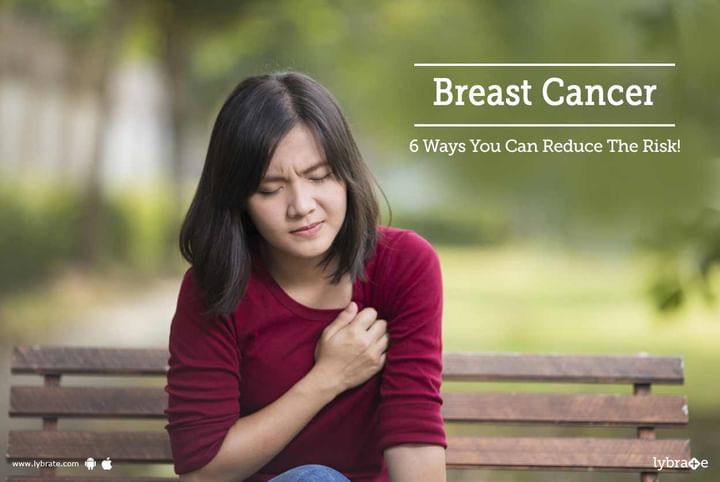Breast Cancer - 6 Ways You Can Reduce The Risk!
Of all cancer types that affect the female population, breast cancer is the most common one. Statistics show that above 1 in 8 women in the USA are likely to develop breast cancer (invasive type, which is often severe). Changing lifestyles including prolonged use of birth control, smoking, alcohol abuse, lack of physical activity, dietary changes, etc., have led to an increased incidence. As these are here to stay, the only way is to prevent.
The likelihood of developing breast cancer is determined by risk factors. Some of these risk factors cannot be changed. For instance, age, ethnicity, and history of familial breast cancer. However, there are others, which can be acted upon or modified to reduce the chances of developing breast cancer.
Some of the preventable risk factors are as follows:
- Nicotine abuse: Quitting smoking has multiple benefits for a woman, and one major benefit is the reduced risk of developing breast cancer. Other benefits include reduced incidence of diabetes, heart disease, and other cancers.
- Hormone replacement therapy: To the extent possible, avoid prolonged use of birth control pills or hormones for other treatment purposes. In addition to using non-hormonal methods, if not avoidable, constantly monitoring hormone levels is very important. Birth control pills should especially be avoided by women over 35 years of age who smoke. The risk associated with developing cancer reduces as soon as the hormone supplement is stopped.
- Weight Management: One of the major risk factors is obesity, and in people with other non-alterable risk factors, it is best to work on weight management from an early age. Talk to your doctor about your ideal BMI and ensure this is maintained.
- Physical Activity: Regular physical activity, at least 30 minutes per day, in addition to strength training will help in keeping the body agile and managing weight. It also reduces the risk of breast cancer.
- Breastfeeding: Studies have shown that breastfeeding has protective effect against breast cancer; longer a baby is breast fed, greater is the protective benefit.
- Screening: Even if not completely preventable, early detection of breast cancer is very important. This will help in less severe treatment and better prognosis. Recommended ages for mammography are as follows:
- In the age of 40 to 44, an annual mammogram is advised along with a discussion with the doctor on the risks.
- An annual mammogram for all women in the age of 45 – 54 is important as most women enter menopause by this time. This needs to be continued annually, as self-breast exams alone cannot detect cancer, thus it is a good practice and anything abnormal will not go undetected.
- These will help reduce the risk of developing breast cancer, help in early detection, and improve prognosis.
In case you have a concern or query you can always consult an expert & get answers to your questions!



+1.svg)
